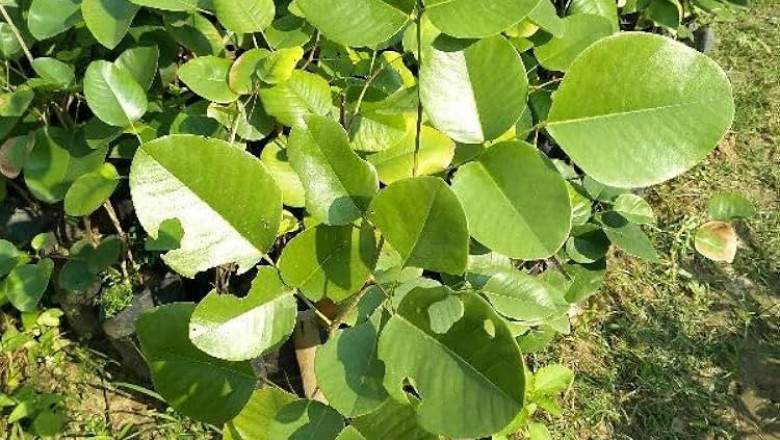views
Growth Requirements:
-
Climate: Red sanders flourishes in hot and dry climates with temperatures ranging from 25-35°C. It is tolerable to some shade but prefers bright sunlight for it’s optimal growth & health. Rainfall should be moderate, between 500-1000mm annually.
-
Soil: The tree prefers deep, well-draining red terrestrial soils that are rich in nutrients. Soil pH should ideally be between 6.0 and 6.5. It can also grow in slightly rocky soils, but heavy clay soils should be completely avoided as they can lead to waterlogging and slow down root growth.
-
Propagation: Red sanders is typically propagated through seeds or cuttings. Seed germination can be challenging and requires certain pre-treatments. Vegetative propagation through cuttings is becoming more popular due to its higher success rate.
-
Nutrient Requirements: While red sanders can grow in relatively poor soils, supplementing with organic manure and fertilizers can significantly boost growth. Nutrient management is crucial, especially during the beginning years. Nitrogen, phosphorus, and potassium are essential macronutrients, while micronutrients like zinc and boron also play a vital role.
-
Watering: Young saplings require regular watering, especially during long, dry periods. However, mature trees are comparatively drought-tolerant. Water management is crucial to prevent waterlogging, which can be detrimental to the tree's well-being.
-
Pest and Disease Management: Red sanders is susceptible to various pests and diseases, including fungal infections and regular insect attacks. Constant monitoring is essential for its healthy growth. Pest control as well as disease management are a few crucial aspects of red sanders cultivation.
Exclusivity and Value:
The slow growth rate (it can take 15 to 20 years for the tree to reach maturity), restricted geographical distribution, and unique properties of the wood contribute to the exclusivity and high value of red sandalwood. The dark red heartwood is prized for its beauty and medicinal properties. It is used in carvings, furniture, the making of musical instruments, and traditional Asian medicines.
Beliefs and Lore:
Red Sands is immersed in mystique and folklore. Some believe the tree holds ceremonial spiritual properties and is said to contribute to good luck and prosperity. It is often used in religious ceremonies and is considered highly sacred by some communities. The huge demand for the heartwood has also led to developments in illegal harvesting and smuggling, which also adds to its value.
Conservation:
Due to its slow growth, limited distribution, and illegal exploitation, red sanders is listed as an endangered species by the IUCN. Sustainable cultivation practices and strict conservation efforts are crucial to protect this precious tree for future generations. Red sanders preservation is considered to be a global concern.






















Comments
0 comment